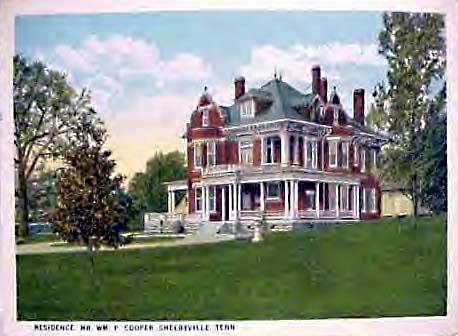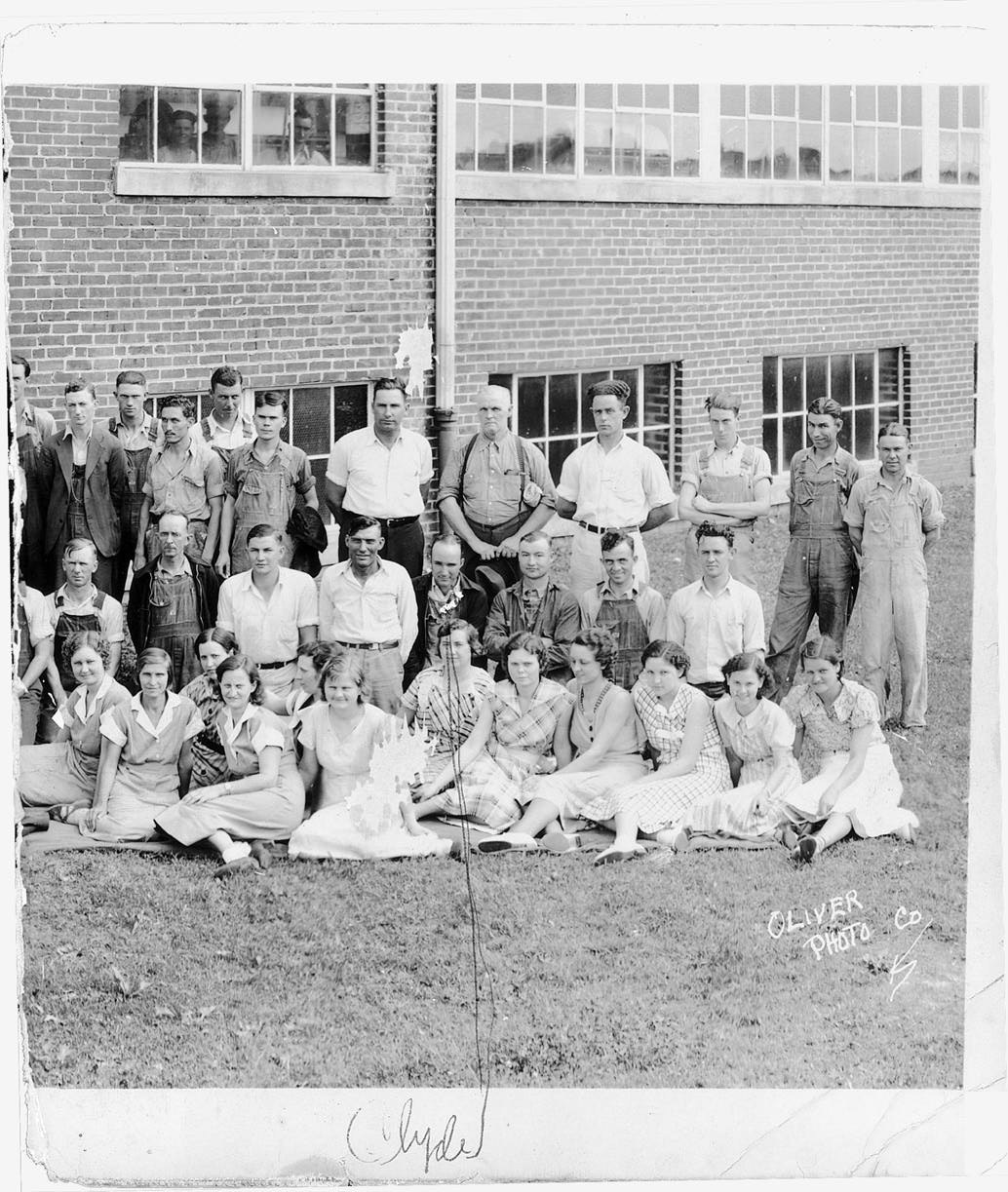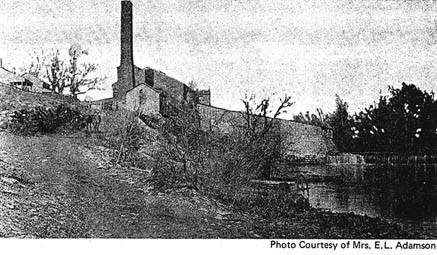|
 |
|
 |

The man circled in the above photo is Clyde Waters, 1912-1964. Many thanks to his son, Gary Waters, who provided the photo.
In its Dec. 7. 1933 issue, the Shelbyville Gazette devoted practically its entire news and advertising space to one firm in Shelbyville. That was the date that the official signing of an agreement between Shelbyville Mills U. S. Rubber Co. was announced to the public.
And there was every reason the Gazette and its subscribers to
rejoice in the announcement. One of the nation's largest and
most
prestigious industries had just bought the Sylvan Mills or
Shelbyville Mills Cotton weaving plant and getting ready to go
into
immediate production.
Update 4/15/18: Gary provided an new, complete version
of this photo:

This was not the worst year the Depression but it was not the best either and the news a new industry with a record of steady employment despite the hard times was coming the town was cause for rejoicing.
"Perhaps the most significant factors for Shelbyville in this announcement are that the mills are being started into immediate operation. They will be brought up to maximum capacity as soon possible, and they will give employment to approximately 500 people, with a payroll running excess of $6,000 per week or over $300,000 per year," the Gazette said.
U. S. Rubber, renamed Uniroyal after a consolidation of products under one name, now has a payroll far exceeding the $6,000 of which the Gazette was so proud; but in the midst of the Depression with the mills having lain idle for over a year, this seemed like a Godsend.
U. S. Rubber went into immediate production utilizing the former weaving mill plant as a cotton tire cord plant after a changeover of equipment.
From that historic date in 1933 to 1941 the plant continued making tire cord, but the needs of the armed services in World War 11 were great and the plant was changed to a manufacturer of military fabrics for the war effort.
By 1944 tire cord was in short supply and the plant was changed back to this product with an A-1 priority from the war production board. For efficiency in production and conversions of products to needs, employee were awarded three army-navy "E's" during World War II.
From 1945 and 1950 cotton tire cord and Chafer fabrics were the products produced at the Shelbyville plant.
Between 1950 and 1962 however rayon and nylon synthetic fabrics began replacing cotton as the main raw material of tires. The company began phasing out its cotton tire cords, employing that equipment in the sales yarn business for the general cotton yarn market.
In 1962 all processing of cotton fiber was discontinued and the cotton machinery was removed from the plant.
The present operation of Uniroyal includes the weaving and finishing of synthetic chafer and industrial fabrics and synthetic tire cord fabrics.
The first of two Hot Stretch units for stretching and solutioning tire fabric was completed in 1966 and the second is scheduled for operation this fall.
The plant has been expanded on several occasions. In addition to the Hot Stretch units, tire cord space was expanded in 1951 with an additional building for the weaving process. In 1954 a new building more than doubled the tire cord capacity.
The fabric finishing part of the plant is now housed in another building added in 1955.
The 75 year old Uniroyal Inc. described in a pamphlet The Story of Uniroyal by George R. Villa, has been a leader in its field since its founding.
One of the reasons the company expanded into textile products is given by Dr. Villa in his book.
" . . . the Company felt it was spending too much money for tire cord and textile fabrics for other products. Textiles represented the second largest volume raw material utilized after crude rubber. Thus in 1917 U. S. Rubber acquired the Winnsboro Mills in South Carolina. Later other textile mills were added."
The old Shelbyville mills were among those others added and the boost that the new Industry gave Shelbyville Was much appreciated during those dark days of the Depression.
Now with the addition of Hot Stretch units add continued expansion, Uniroyal again is owed a debt by Shelbyvillians.

Return to the Bedford County TN Gen Web Main Page
